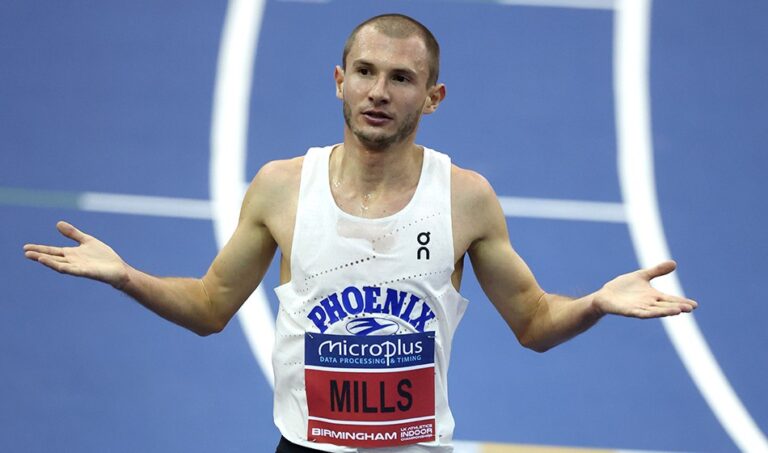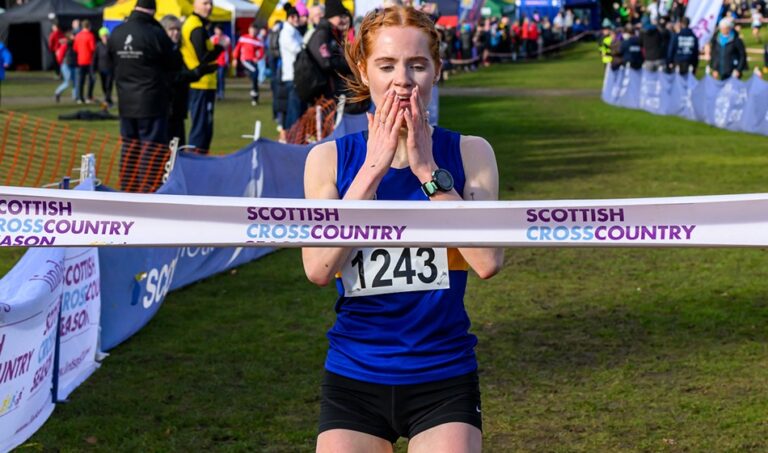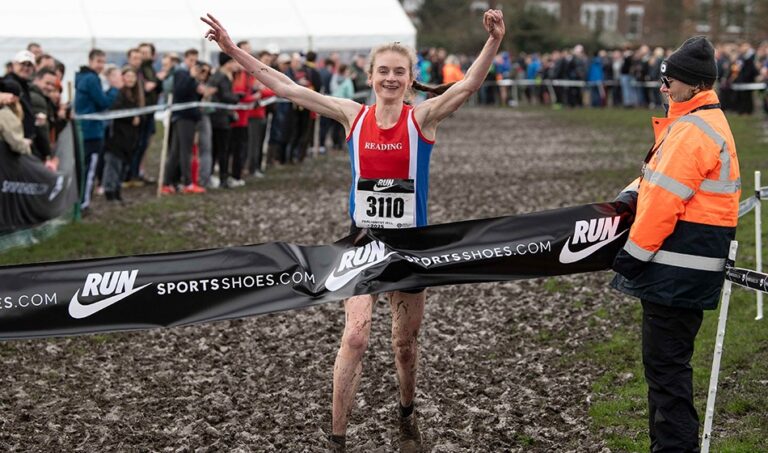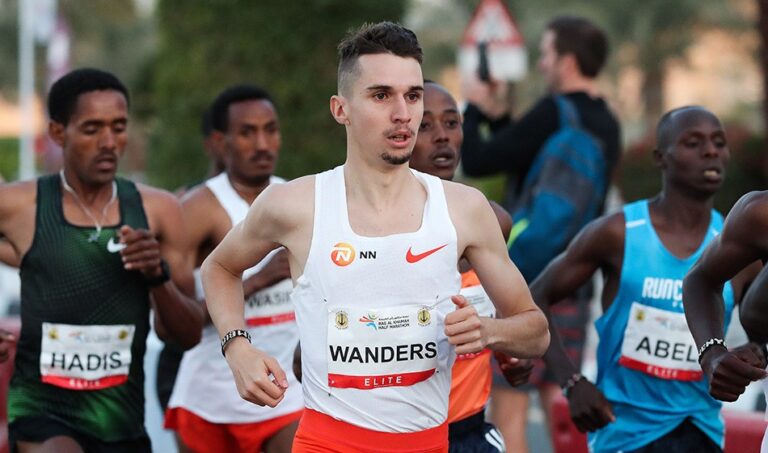
An interview with the nine-time Olympic champion on everything from discovering the British sprinter to his coaching philosophy
One of the highlights from the UK Athletics Championships – doubling up as the GB Olympic Trials – was Louie Hinchliffe becoming the national men’s 100m champion and booking himself a spot on the team for Paris.
The 21-year-old stormed through the field, which included the likes of CJ Ujah and Reece Prescod, to run 10.18 (-0.8) in tricky conditions.
Carl Lewis
Last year, Hinchliffe’s personal best was 10.17. Since moving to the University of Houston, under the stewardship of none other than nine-time Olympic champion Carl Lewis, the Brit has lowered his best mark to 9.95. He has also clocked 9.84, although the tailwind of 2.5m/s was just over the legal limit.
Hinchliffe’s other big achievement was becoming the first ever European to win the NCAA (US collegiate) men’s 100m title at Hayward Field in Oregon (June 7).
It’s been a remarkable few months and much of the success is down to Lewis, who is Head Coach of Track and Field at the University of Houston.
Hinchliffe stated afterwards that his first ever conversation with Lewis was about the possibility of making the Olympic team.
That’s now a reality. So what does Lewis make of it all, why did he take Hinchliffe on in the first place and how does being a “teacher” compare to competing?
Here’s our Q&A with the nine-time Olympic champion.
Louie Hinchliffe (Getty)
Carl, when you first met Louie after he wrote to you, did you imagine he would be going to the Paris Olympics?
It’s funny, when he [Louie Hinchliffe] wrote to me the first thing I did was talk to Shaun Maswanganyi. Then I looked at a video of Louie and I was like ‘gosh, this guy is doing this and this’ and I could correct it. I thought he could run a lot faster. So my goal for him was to make the Olympic team. Now, it wasn’t to go and win the Olympic trials but it was to book a spot on the team. I thought I could get him under 10.10 which would’ve been right there.
So far, he’s exceeded what I thought was possible. I think the big thing for him has been the NCAA system. I never knew a European had never won the 100m title before him. For me, the biggest element of his improvement is his consistency. So I felt very confident for him at the Olympic trials.
Was the reason you took Louie on because you believed his potential was so high?
With the way that our team was set up at the University of Houston, I never had to put any pressure on Louie. Being in a city like Houston, everyone can get lost. So not having that constant pressure on the track really helped him off it as well.
You know, he’s such a good teammate, his personal life is pretty settled and he does what he’s supposed to do. This was his first trip back to Great Britain in 18 months so the focus for Louie is there and that’s why he’s having such success.

Louie Hinchliffe (Shawn Price)
Louie is one of a large number of UK athletes going to the NCAA system in the US. What do you think are the biggest differences between a UK/European college model to the one stateside?
I think the level of competition is different. When you compete at the high school level it’s also a lot of fun, while you also get your education. Everything you do is important. Studying is big as it prepares you for life and alongside competing, we take care of everything. You don’t have to worry about bills, physios or the gym for example.
We at the University of Houston have a trainer just for the gym and coaches for sprints. Plus, there’s a medical system that’s set up and we’re four miles away from a large hospital. So if you get hurt you get an MRI scan in the morning. No post-collegiate athlete has a system that they have in college. It’s a great system where you can develop quickly.
What’s the definition of success for Louie Hinchliffe at the Olympics?
My goal is to focus on what you can control. I can’t control what place he gets at the Olympics but what we can look at is what his time is. I know that if you run 9.9 or better than you will have made every 100m final in track and field history. So we have something really simple. Break 10 seconds and you’re in the Olympic final. If he does that then anything goes.
What do you make of the current men’s 100m landscape?
Right now you have to look at Noah Lyles [as favourite for the Olympic 100m gold medal] as he’s won every race this season bar one and is the defending world champion. Interestingly, the last person to win two major global 100m gold medals back-to-back is Usain Bolt [Beijing 2015 and Rio 2016]. It’s that long ago. I think Noah is trying to push himself to the front again. Great athlete and kid. He is without question the favourite going into Paris because the favourite is the favourite until they lose.
The goal for us is not to worry about the likes of Noah and others and look at what you can run. My philosophy was not caring about others and just focusing on running faster than you. If you ran 10 flat, I ran 9.9. That’s what I’m going to teach Louie.

Louie Hinchliffe (left) (Getty)
You’ve stated you don’t see yourself as a coach but as a “teacher”. How does that compare to being an athlete and competing yourself?
When you’re a college coach, you are a mentor, friend and parent. You put an arm round their shoulder and sometimes you have to punch them in the face! You’re everything. You have to both discipline and praise them.
From the athletics side, it’s a different space to be in. I initially never had any thought or interest in being a coach but I ended up here. Now I’m here, I look at it from an athletics standpoint in how to get things done because what’s happened is we actually forget that athletes existed before 2000. One of the things that I’ve noticed is that athletes now can’t do the workouts I used to do. I don’t see anyone getting four gold medals at the same Olympics.
We’re not pushing our athletes now to do that. You know, I’m not going to talk to the athletes about my races and how fast I was in my career. You can look at that on Youtube! So by focusing on their individual goals allows them to be in their own space. Once you are fast and consistent, which is really difficult to do, then you have a whole other set of things to look at from an emotional and mental standpoint.
I took a video of Louie signing autographs at the end of his 100m race in Manchester. Nine months ago, in Houston, not one of those kids would’ve known who he was. Now, he’s a champion and he got the biggest cheer before he ran.
That’s the stuff which is as important to manage. You can’t fake the funk. It’s the eye in the sky and the time on the wrist. They don’t miss. That’s what matters.
Japanese-style Ekiden race hits the UK






